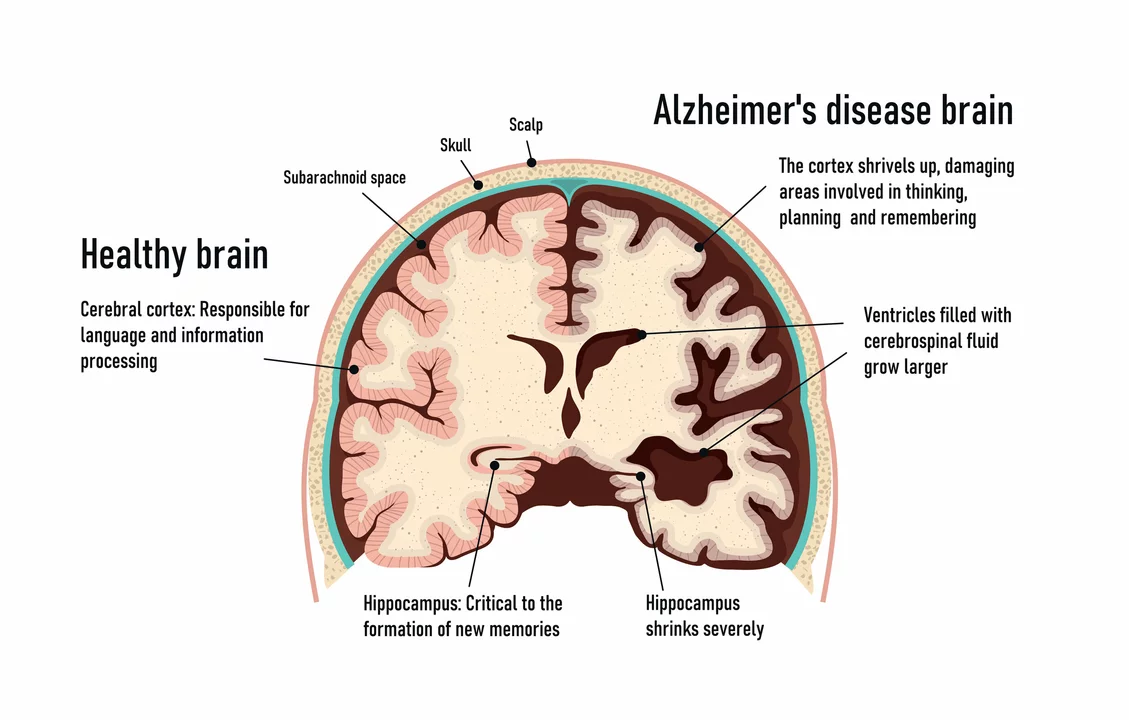Alzheimer's disease: signs, tests, and what to do next
Alzheimer's is more than forgetfulness. It slowly changes thinking, planning, behavior, and daily routines. The 2020 Lancet Commission estimated many dementia cases link to modifiable risks, so acting early can matter. If you or someone you care about seems different—jumping between tasks, repeating questions, or losing track of time—take it seriously.
Spotting early warning signs
Early signs are often small: short-term memory slips, trouble finding words, difficulty following a recipe, or getting lost on a familiar route. Mood shifts—apathy, anxiety, or sudden irritability—are common. If these problems affect daily life or work, book a medical check. Don’t wait for dramatic decline.
Expect a basic workup at the clinic: a medical history, cognitive tests like MMSE or MoCA, blood tests to rule out vitamin deficiencies or thyroid issues, and often brain imaging (MRI or CT) to check for strokes or structural changes. A neurologist or memory clinic may run more detailed testing when needed.
Treatment and practical everyday steps
No drug cures Alzheimer’s yet, but treatments can ease symptoms and slow some decline. Common medications include cholinesterase inhibitors—donepezil, rivastigmine, galantamine—and memantine for moderate to severe stages. These can help memory or function for months to years in some people. Side effects like nausea, sleep problems, or dizziness happen, so review risks with your doctor.
Beyond pills, small daily habits add up. Regular aerobic exercise, a Mediterranean-style diet rich in vegetables, whole grains, fish, and olive oil, good sleep, and keeping blood pressure and diabetes under control all support brain health. Cognitive activities—reading, puzzles, learning a skill—and social connection help keep the mind engaged.
Be cautious with supplements. Evidence for vitamin B, omega-3s, or herbal remedies is mixed; they won’t replace medical care. Always check with the prescribing clinician before mixing supplements with prescribed meds.
Caregivers should simplify routines: use clear labels, calendars, and pill organizers. Break tasks into single steps and reduce clutter. Safety-proof the home—install night lights, remove tripping hazards, and lock dangerous tools or medications. Plan legal and financial matters early while your loved one can still participate.
Find local support: caregiver support groups, respite services, and memory clinics make a difference. Ask your doctor for referrals to social workers, occupational therapists, or community programs.
If you suspect Alzheimer’s, make an appointment and bring notes about specific changes. Early diagnosis opens up treatment options, planning time, and ways to preserve quality of life. You don’t have to handle this alone—ask for help and take one practical step today, like scheduling a screening or simplifying daily meds.
The Role of Nutrition and Rivastigmine in Alzheimer's Disease Management
In my latest blog post, I explored the crucial role of nutrition and Rivastigmine in managing Alzheimer's disease. I discussed how a balanced diet rich in antioxidants, omega-3 fatty acids, and other essential nutrients can potentially slow down cognitive decline. Additionally, I delved into the benefits of Rivastigmine, a medication proven to alleviate some Alzheimer's symptoms by enhancing memory and cognitive function. Through this post, I aim to raise awareness about the importance of a comprehensive approach to Alzheimer's management and encourage further research in this field. So, if you or a loved one are affected by this condition, I highly recommend giving it a read to learn more about these valuable strategies.
View More
